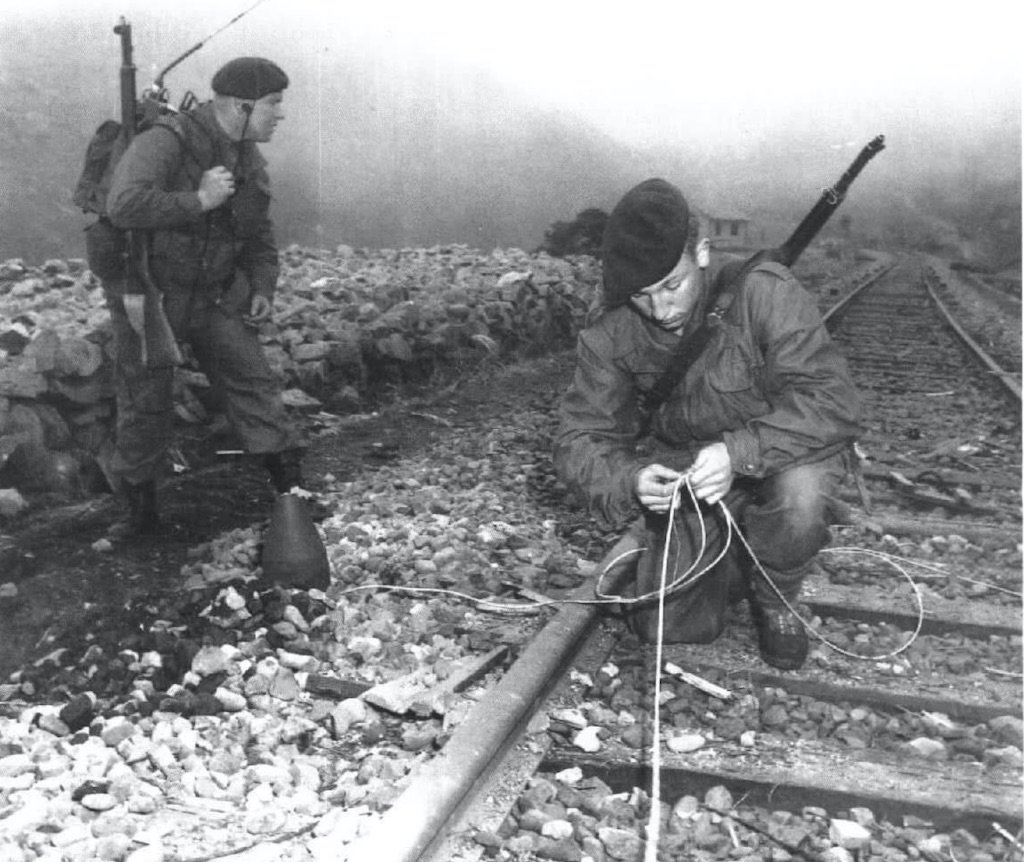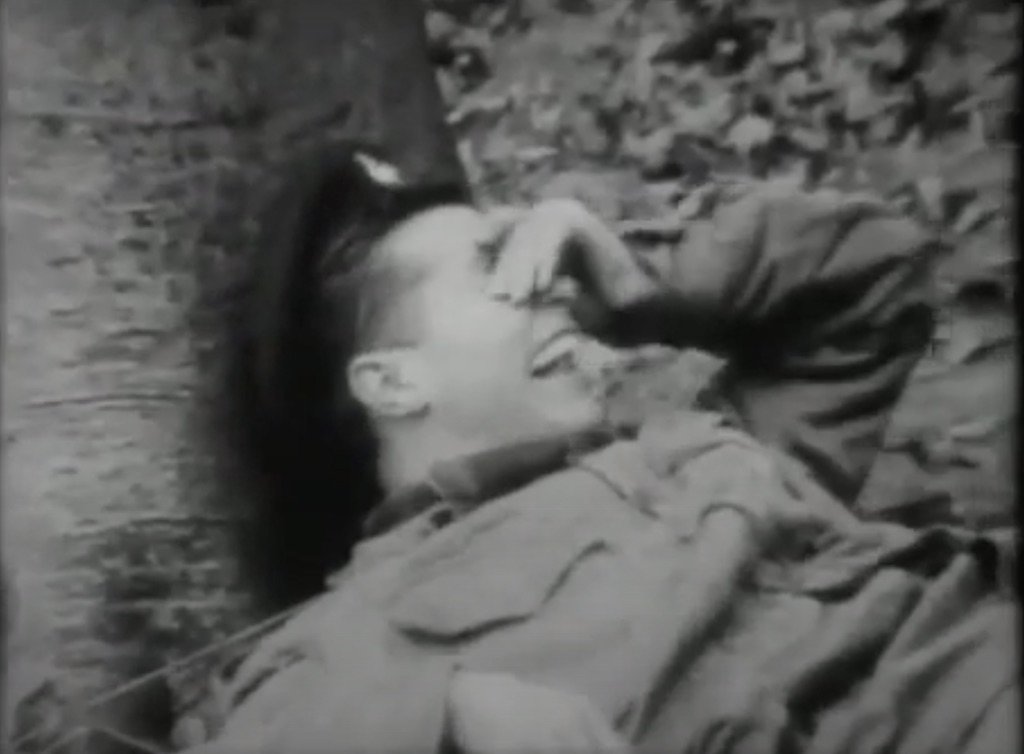WATCH: British Royal Marine Commandos Laughing on LSD During a Totally Serious Military Exercise

Two commandos from the Royal Marines Independent Commando during the Korean War. Photo courtesy of the U.S. Marine Corps (https://www.marines.mil/Portals/1/Publications/Train%20Wreckers%20and%20Ghost%20Killers-Allied%20Marines%20in%20the%20Korean%20War%20%20PCN%2019000410700_1.pdf)
The British Royal Marines that made up the 41 Royal Marine Commando unit were battle-hardened warriors. During World War II, they saw action in Salerno, Italy, and Orne, France, and participated in Operation Infatuate on the Dutch island of Walcheren. They earned a legendary reputation as “train wreckers” and “ghost killers” operating alongside US Marines at the Chosin Reservoir campaign in the Korean War.
There was simply no opponent that was tough enough or smart enough to outwit these badass commandos. Unless, of course, their enemy secretly infused their water bottles with LSD (lysergic acid diethylamide), the psychedelic drug.
A weeklong military exercise between Nov. 27 and Dec. 4, 1964, exposed a weakness in the commandos’ armor. The Porton Down chemical weapons research establishment conducted the Moneybags Trial with a goal of identifying whether LSD could incapacitate enemy forces without the risk of fatal casualties.

“For this experiment, a simple exercise was devised based on the internal security problems met by our forces during the EOKA campaign in Cyprus,” the narrator of the video says. “Seventeen Marine volunteers were organized into a troop of two sections with a headquarters element. The troop was given the task of capturing as many terrorists as possible and locating some stores, which had been hidden in defined areas.”
Before each of the three test days, the troops were given the same quantity of water to drink. “Unknown to the troops, the drug was added to the water on the second day,” says the narrator. “For the sake of safety, the troops were not given any ammunition during the exercise.”
As expected, the first day the commandos were poised, observant, and alert. It wasn’t until the second day when the hilarity ensued, all while the commandos were oblivious to what they had just ingested.
The troop commander was given intelligence suggesting half a dozen terrorists were in the area. They drank their cups of water at 11:15 a.m., and a half-hour later, the drug began to run its course. “They no longer take cover, they relax, and begin to giggle.”
Instead of advancing with a sense of urgency to the next objective, the commandos stroll to the target while laughing. After a coordinated ambush, the radio operator is told that he was hit; regardless, the narrator states, “by this time 11:50, [he] has become incapable of operating his set anyway.”
A commando with a shoulder-fired rocket launcher has a smirk on his face and is unable to take aim. Another nearly chops a tree down with a garden spade. One commando even puts down his rifle to climb a tree. In short, the drug dose was sufficient to prevent the success of their mission.
The commandos were taken by ambulance to recuperate in a hospital surrounded by medical experts. On the last day of the exercise, the commandos had zero signs of lingering symptoms from the previous day.
Psychedelic experiments were also conducted by the CIA and MI6, yet these provoked more controversy than this lighthearted trial.

Matt Fratus is a history staff writer for Coffee or Die. He prides himself on uncovering the most fascinating tales of history by sharing them through any means of engaging storytelling. He writes for his micro-blog @LateNightHistory on Instagram, where he shares the story behind the image. He is also the host of the Late Night History podcast. When not writing about history, Matt enjoys volunteering for One More Wave and rooting for Boston sports teams.
BRCC and Bad Moon Print Press team up for an exclusive, limited-edition T-shirt design!
BRCC partners with Team Room Design for an exclusive T-shirt release!
Thirty Seconds Out has partnered with BRCC for an exclusive shirt design invoking the God of Winter.
Lucas O'Hara of Grizzly Forge has teamed up with BRCC for a badass, exclusive Shirt Club T-shirt design featuring his most popular knife and tiomahawk.
Coffee or Die sits down with one of the graphic designers behind Black Rifle Coffee's signature look and vibe.
Biden will award the Medal of Honor to a Vietnam War Army helicopter pilot who risked his life to save a reconnaissance team from almost certain death.
Ever wonder how much Jack Mandaville would f*ck sh*t up if he went back in time? The American Revolution didn't even see him coming.
A nearly 200-year-old West Point time capsule that at first appeared to yield little more than dust contains hidden treasure, the US Military Academy said.












